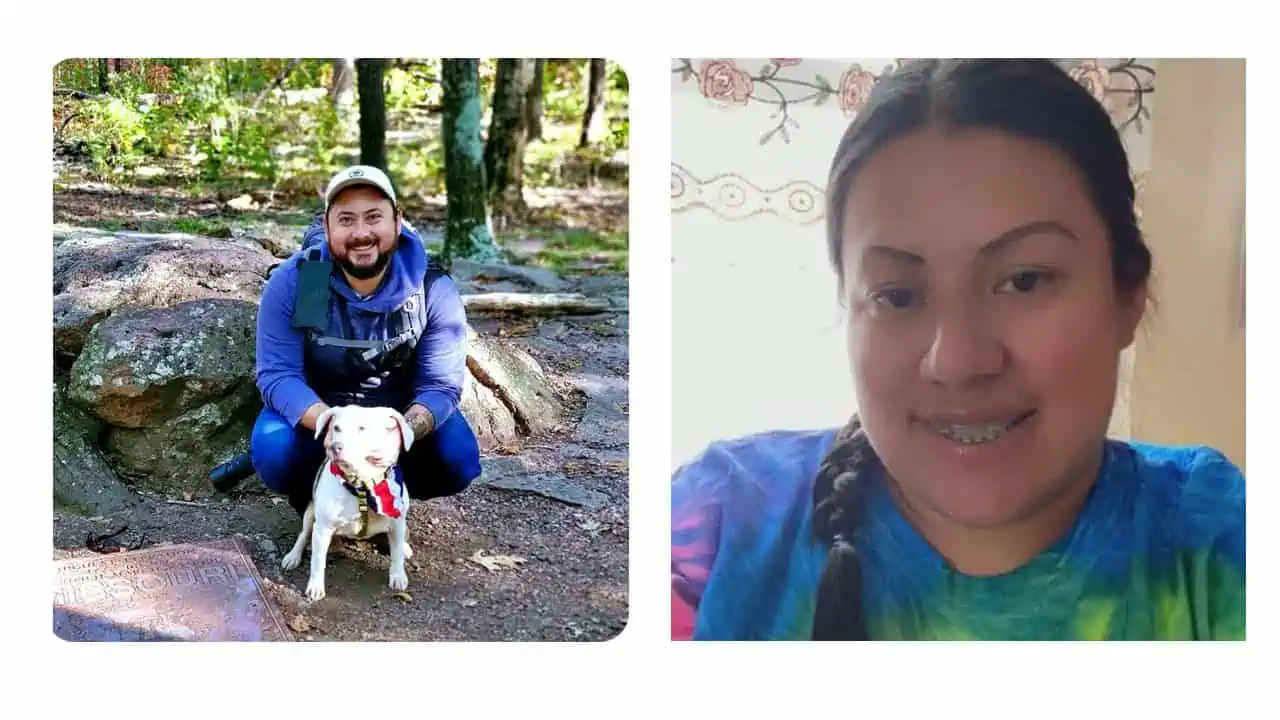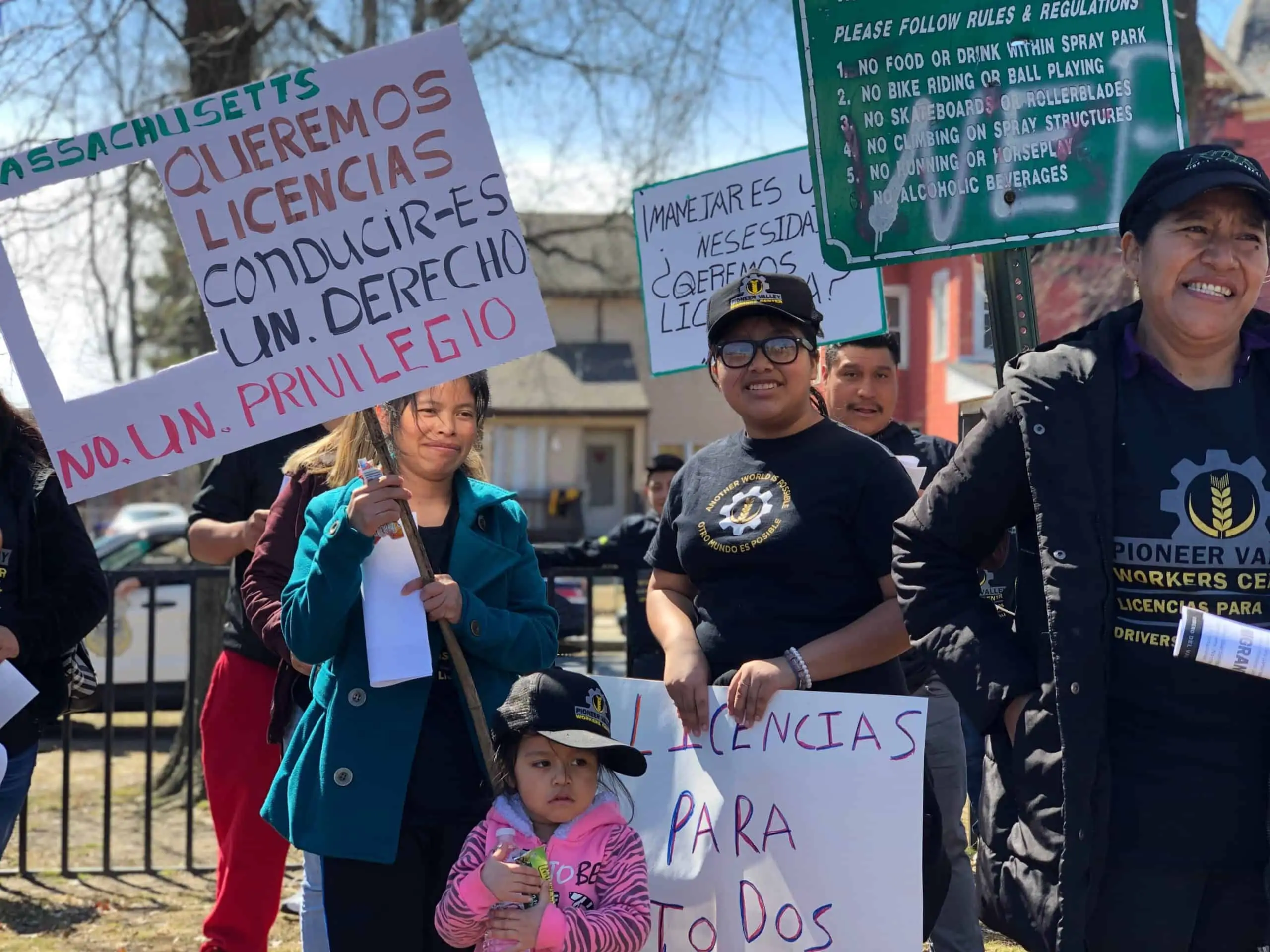Meet Claudia Rosales and Alfonso Neal, Co-Directors of Pioneer Valley Workers’ Center
As executive co-directors of the Pioneer Valley Workers’ Center (PVWC), Claudia Rosales and Alfonso Neal embody the organization’s mission of harnessing the collective power of immigrant workers. Claudia and Alfonso leverage their personal and professional experiences to lead PVWC, a WES Mariam Assefa Fund grantee partner that launched in 2014 to strengthen and center power among immigrant workers in low-wage jobs throughout Western Massachusetts, with a major focus on farmworkers. Unanimously elected by the Worker Center Staff Collective and its board, both began their roles in the fall of 2021.
PVWC plays a multifaceted role. It helps strengthen communities through mutual aid, it organizes workplaces through direct advocacy and unionizing, and it takes political action to effect economic and social change on behalf of working people. Additionally, PVWC supports Riquezas Del Campo, an immigrant worker-owned cooperative farm the organization helped to incubate.
“We envision a world where our lives are no longer dominated or determined by any form of extractive economic system, where everyone has what they need, and where people have collective agency and can define their futures for themselves,” Claudia and Alfonso say.
Above: Alfonso Neal and Claudia Rosales.
For Claudia, who was born into a family of farmworkers in El Salvador, the introduction to agricultural work came early in life. Her firsthand experience greatly influences her work at PVWC, and she is proud of her family’s history.
“My experience as a farmer taught me to be a caretaker of life and to protect our planet and its natural resources,” she says.
Claudia deeply understands the economic difficulties migrant farmworkers experience. “It is time for farmers to be more appreciated by their communities and by the socioeconomic structures of our country,” she says. “Farmers’ rights are human rights, and we need quality health care, livable wages, and accessible education.”
As COVID-19 began to spread, illuminating various labor rights issues, Claudia worked on the front lines supporting farmworkers.
“Many people were sick with COVID, fired unfairly for being sick, and not paid for the time they were sick,” she recalls. “Other people did not receive gloves, masks, or hand gel, and were unprotected and exposed to the virus because they had to work.” As an organizer, Claudia was committed to providing social and economic support to farmworkers. Moreover, in 2021, the Fund provided vaccine equity funding to PVWC to support in its efforts to increase awareness of the safety and logistics of getting the vaccine to over 700 Spanish-speaking immigrant community members in Western Massachusetts.
Alfonso, also a co-director at PVWC, has extensive experience in labor organizing and he has already had an impact. He has worked tirelessly to train new organizers; for example, he was integral to the Fight for $15, a successful campaign that won fast-food workers the right to a living wage, and he has worked to strengthen campaign structure, coalition building, and leadership development for workers.
“Aside from fighting to raise the minimum wage to $15 an hour, I focused on giving workers and allies the tools they need to advocate for themselves and others inside and outside of the workplace,” Alfonso notes. “One major challenge was bridging the gap between traditional labor unions and community groups who were skeptical of the role of a non-traditional labor organizing campaign, one that took a completely different approach.”
Throughout his career as a labor organizer, Alfonso has witnessed substantial shifts in the field. At the beginning of his career, organized labor was “out of touch with most working people, especially with the millennial generation actively working in the tech industry,” he says.
However, Alfonso believes that one of the most significant changes has been the “reawakening of working-class consciousness” that was catalyzed by COVID-19. He explains that the pandemic highlighted the value of labor, and reinforced that workers in all sectors deserve dignity and respect at their jobs.
PVWC also works closely with its immigrant community to address needs outside of the workplace so that community members can thrive. Claudia and Alfonso say that one of their biggest accomplishments was PVWC’s successful fight to win a community-wide vote to stop the police from collaborating with immigration authorities. Another example is PVWC’s sustained push for the passage of the Work and Family Mobility Act, which grants eligible Massachusetts residents the right to apply for a driver’s license regardless of their immigration status. PVWC members hope that the bill will soon be passed.
Looking ahead, Claudia and Alfonso plan to continue leading PVWC’s labor rights advocacy efforts in support of immigrant workers in Western Massachusetts. The organization’s goals for 2022 include passing farmworker protection legislation in the state, building out PVWC’s team of frontline organizers with lived experience in the field, and eliminating the state subminimum wage across Massachusetts.
Stay in Touch
Thank you for your interest in the WES Mariam Assefa Fund. We’ll share updates on the Fund’s efforts, what we’re learning, and opportunities through our email list.

